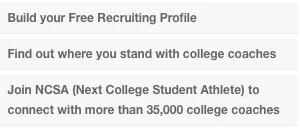NCAA Amateurism Cabinet Exploring Student-Athlete Likeness Concepts
In September, the NCAA Division I Amateurism Cabinet began a review of the NCAA’s rules regarding the use of a student-athlete’s name or likeness. Specifically, the cabinet began looking at student-athletes using their name or likeness to promote different types of businesses, including:
- Athletically or nonathletically related commercial businesses which employ the student-athlete;
- Nonathletically related businesses owned by student-athletes; and
- Private lessons taught by student-athletes in their sport.
Changes to the NCAA’s fee-for-lesson rules were not discussed in any detail during the Amateurism Cabinet’s September teleconference. Three concepts were discussed that, if adopted, would provide varying levels of additional flexibility to student-athletes to use their likeness in employment or their own businesses.
It is important to note none of the concepts discussed would allow student-athletes to be compensated for the use of their name or image. All would maintain the existing rule that student-athletes may only be paid for work actually performed at the going rate in the locality for similar services.
There are the three concepts discussed by the Amateurism Cabinet:
- Option 1: Use of Likeness in Athletically and Nonathletically Related Employment and Businesses: Would permit student-athletes to use their name or likeness to promote either their own business or place of employment, even if the job or business is related their athletic ability. The example given was a football student-athlete cast as a football player in a movie. The athlete could be paid to be in the movie and promote the movie as well.
- Option 2: Use of Likeness to Promote Nonathletically Related Employment and Businesses: Would permit student-athletes to promote their own businesses and an employer’s if it is not related to their athletic ability. Examples of permissible promotions would be promoting a local business which employs the student-athlete, promoting a family business, or promoting the student-athlete’s music career. The movie example above would not be permissible.
- Option 3: Use of Likeness to Promote Student-Athlete’s Own Nonathletically Related Business: Would permit student-athletes to use their name and likeness to promote their own businesses if not related to athletics ability. Would not allow athletes to promote an employer’s business.
All of these options would keep student-athletes from facing choices like Joel Bauman faced when he had to decide between his rap career and wrestling for Minnesota. Option 1, the largest potential change, could open up a number of additional employment opportunities for student-athletes. But athletes participating in commercial promotions without additional compensation may fuel that debate rather than quell it.
The Amateurism Cabinet report from the meeting did not say much about the discussion but did indicate the initial reaction was positive:
The cabinet was supportive of providing some flexibility in these circumstances and requested to continue the discussion of the legislative concepts developed by staff at its February meeting.
It is far to early to handicap exactly where this discussion might go. But the initial positive reaction and the possible resolution to the legislative limbo the NCAA has been in for over two years should give a glimmer of hope to those who want to see some movement in this area, however small.


